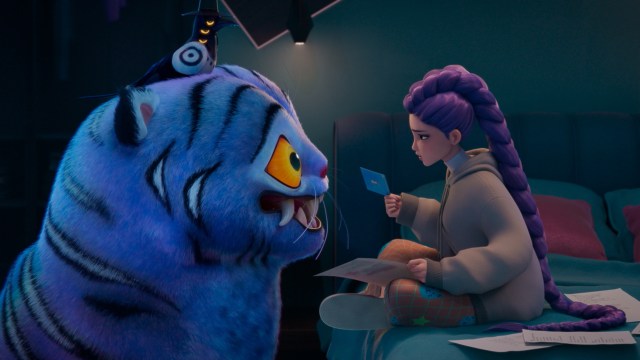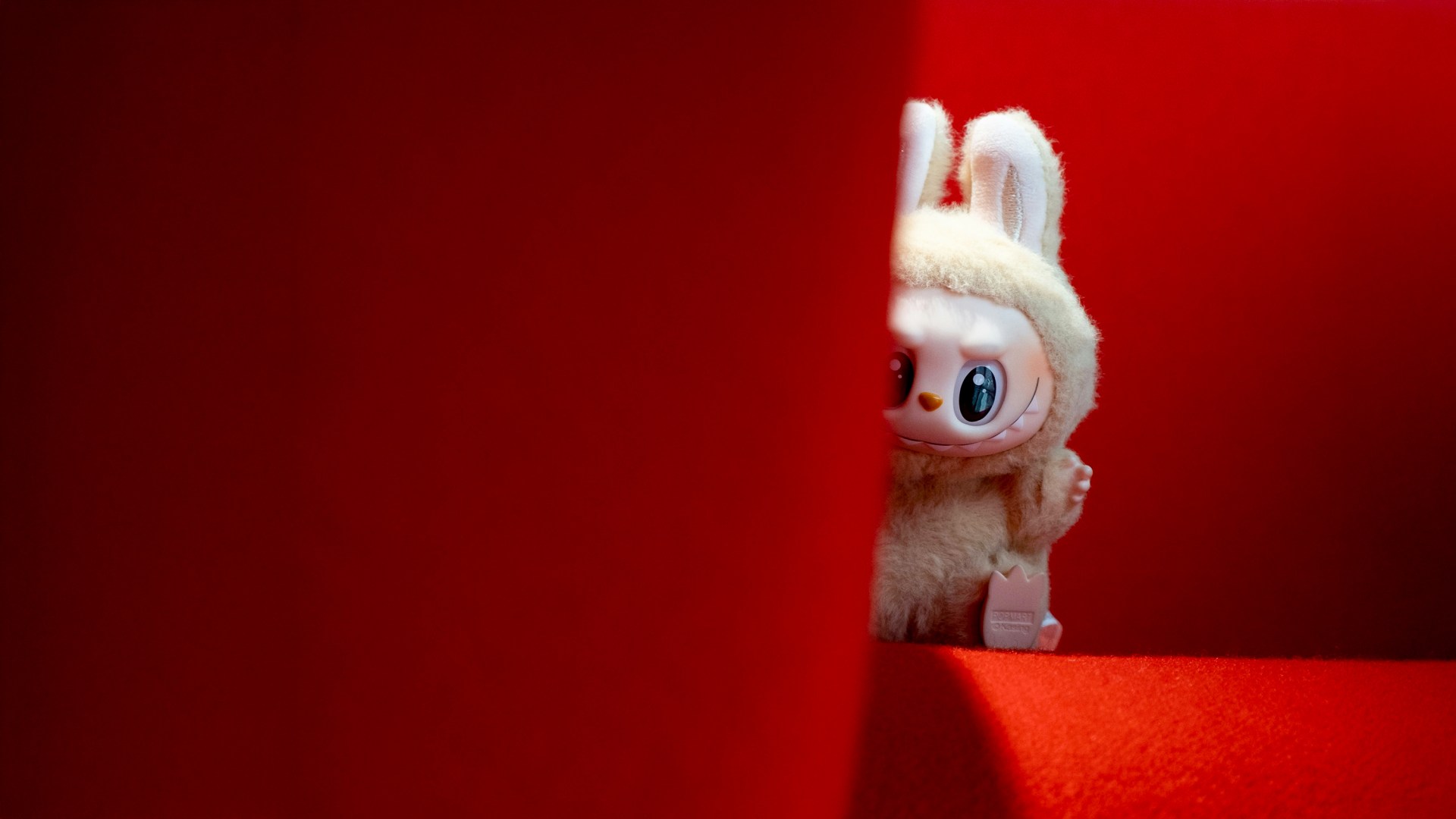I grew up watching Hong Kong flicks where jiangshi—creepy vampires or zombies with unkempt hair and pale skin—would stick their arms out stiffly and jump up and down, approaching with murderous intent. I read True Singapore Ghost Stories voraciously; that’s where I learned about pontianaks, vampiric ghosts from Southeast Asian folklore who would often appear alongside the sickly sweet scent of frangipani. These movies and tales freaked me out. The day I caught a Thai horror film in the cinema was also the day I decided never to watch another like it again.
But in recent Asian pop culture trends, these otherworldly creatures aren’t that terrifying anymore. We are mollifying monsters and domesticating demons, humanizing them with empathetic depictions.
Take the furry, big-eyed, mischievously grinning toy Labubu, whose origin story is based on Nordic mythology. Its popularity first surged in Asia; it’s since become one of the most in-demand collectibles around the world, with some attributing its rise in desirability to the “kidulthood” phenomenon.
Others, however, have decried the monster doll as demonic and associated it with Pazuzu, a Mesopotamian entity featured in The Exorcist. Such criticism has hardly dampened sales; the company behind Labubu recently reaped a 10-digit profit.
There’s also Netflix’s runaway hit KPop Demon Hunters. Sassy girl group HUNTR/X uses special powers (and terrific vocals) to protect the world, maintaining the Honmoon—a magical barrier that prevents evil creatures from entering the human world—through song. They meet their match when rival boyband Saja Boys—five stylish demons with colorful, perfectly coiffed hair—debut in a bid to steal their fans and allow the demons to conquer the world.
References to the insidious nature of evil, couched in charisma and glamour, abound in the film. Saja means lion in Korean, but it can also stand for grim reaper. The songwriter behind the Saja Boys’ catchy tune “Your Idol” says the lyrics of the song were inspired by the Christian teaching that worshiping idols is sinful.
But what stands out most in the movie is how demons are portrayed—as creatures with conflicting emotions and a desire to do good. Rumi (voiced by Arden Cho/Ejae Kim), the leader of HUNTR/X, is half-demon and struggles to figure out who she is, eventually deciding to fight for good and becoming the savior of the world. Jinu (Ahn Hyo-seop/Andrew Choi) is a human-turned-demon who ultimately sacrifices himself so that Rumi can defeat demon overlord Gwi-Ma (Lee Byung-hun).
Some might say this inclination toward humanizing demons and monsters isn’t new. Asian mythology and folklore has its fair share of alluring supernatural entities, like the Chinese fox spirit that often appears as a beautiful woman. Studio Ghibli films subvert conventional depictions of devilish beings through characters like quirky fire demon Calcifer in Howl’s Moving Castle.
But such sympathetic portrayals of demons and monsters are becoming more widespread. Besides Rumi and Jinu in KPop Demon Hunters, we root for Nezuko (Akari Kito) in the hit Japanese manga and anime Demon Slayer as she strives to contain her bloodthirsty demonic side. When she unleashes her demon form, it is only in service of protecting her loved ones from the heinous fiends that seek their destruction. We cheer on demon-child Ne Zha (Yanting Lü), the titular character in the top-grossing Chinese animation movie sequel, as he endeavors to overcome his diabolical nature to become a hero rather than a villain.
To be clear, I’m not necessarily arguing against enjoying Labubu, KPop Demon Hunters, or these other pop culture phenomena. But I am intrigued by our modern-day penchant for making monsters and demons safe—or cute or attractive or morally ambiguous—and how this might be creating a sense of spiritual ambivalence.
Instead of the grotesque, one-dimensional caricatures I watched and read about years ago that were most definitely 100 percent wicked—and therefore deserving of total destruction—the monsters and demons that are capturing our collective consciousness today are relatable and humorous, anthropomorphized or animal-like in their expressions, body language, and actions. (Don’t get me started on Derpy, Jinu’s adorable tiger demon sidekick in KPop Demon Hunters; I’d love that plushie!).
 ©2025 Netflix
©2025 NetflixMaybe these portrayals point to humanity’s loss of connection to the transcendent. In the pre-modern era, people lived in an “enchanted” world teeming with good and bad spirits. Now we’re subsumed in an age of “disenchantment,” as the philosopher Charles Taylor argues in A Secular Age. Nothing is wholly bad or wholly good anymore.
That makes sense. If there is no capital-G God around, who defines what is good and what is evil? Humanity is no longer intimately tethered to a divine, external being who is far more powerful and all-knowing than our finite selves can ever be. We emerge with what Taylor calls the “buffered self,” which “offers humans the freedom to create a social world,” as philosopher Dennis O’Brien writes in his review of A Secular Age.
This loss of connection to God as our ultimate good drives humanity toward self-determination. We are in control of our own narratives, tasked with realizing the depth of our selfhood. We don’t need to relate to a god, or God, to determine who we are.
Unconsciously or otherwise, we have placed ourselves at the center of every battle between good and evil. The narrative du jour is how a human, demon, or half-demon can successfully overcome the darkness within by their own strength, as characters like Rumi and Nezuko exhibit. Mastery of the self is the pinnacle of achievement.
There’s a spillover effect in how we are remaking demons and monsters in our own image as flawed beings that are capable of building up and tearing down—capable, even, of saving humanity. These creatures might remain fearsome, but more than that, they are also surprisingly deserving of our compassion and empathy. In this atmosphere, spiritual ambivalence thrives. Everyone does what is right in his or her own eyes; sin is in the eye of the beholder.
But the Bible doesn’t blur the lines between good and evil. It shares accounts of demons wreaking chaos and havoc in peoples’ lives—and a God who has ultimate victory over these forces. Even the demons believe that there is one God and shudder (James 2:19). Further, we are to put on the full armor of God, because our struggle is not against flesh and blood but against “the rulers, against the authorities, against the powers of this dark world and against the spiritual forces of evil in the heavenly realms” (Eph. 6:10–12).
If we aren’t afraid of demons and monsters anymore, what are we most afraid of? I submit that we fear losing our autonomy more than getting attacked by external evil. In a world of buffered selves, we strive to develop main character energy. We envision our lives as upward line graphs, with bigger homes, cars, and paychecks as signs of experiencing God’s favor. To lose control over our individual destiny is undesirable and unthinkable.
“Perhaps nothing poses a greater temptation to self-reliance and self-righteousness than a life free of challenge and filled with markers of success,” Jen Wilkin writes for CT. “Such a life is its own potent form of seduction.”
Maybe our desire for autonomy is the sinister undercurrent beneath this trend toward domesticating demons and mollifying monsters. Maybe the trend reveals more of ourselves than we think—it’s a mirror we can peer into, revealing how far from God we are and how much we tend to indulge in illusions of grandeur and power.
Christians can be more aware of the misconceptions and assumptions that popular culture brings to our notions of God and the self while remaining spiritually sensitive and aware of how Scripture can affirm or challenge them. As my colleague Kate Lucky wrote, “Our job is not to justify our taste in culture but to explain what we see from a vantage point oriented to Christ.”
I doubt that this trend of making demons and monsters like us will relent. We’ll likely see more depictions of autonomy in the media we consume, with nothing truly good to root for or truly evil to condemn. The more we watch for them, the more we’re able to resist narratives of the self as ultimately authoritative. We who believe in our Lord and Savior Jesus Christ can proclaim with absolute certainty and humility, “God is God and I am not.”
Isabel Ong is the East Asia editor for Christianity Today.





















